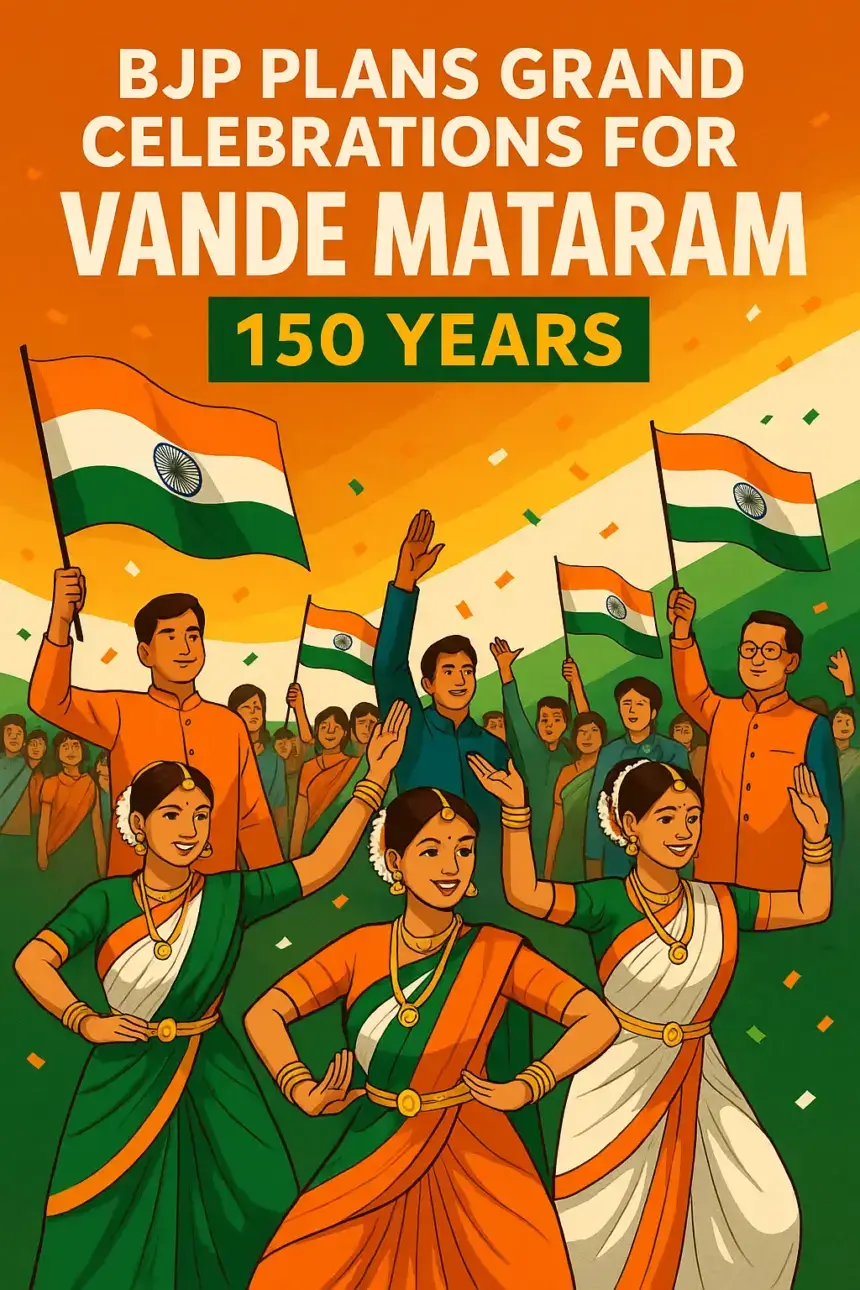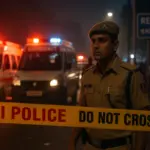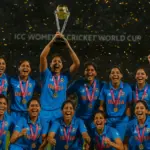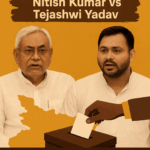BJP’s Grand Plan to Celebrate “Vande Mataram” @150: Unity, Culture and Political Rhythm
Have you noticed how the patriotic song “Vande Mataram” keeps surfacing in the conversations of the day? This year is especially significant — it marks around 150 years since the song was written by Bankim Chandra Chattopadhyay, and across India, plans are being laid for celebrations that mix culture, politics and national pride.
The BJP has taken the lead, announcing a series of events, programmes and mass-participation drives to mark this milestone. It’s not just about remembering a song: it’s about narrating a story of patriotism, unity, and collective remembering — and yes, there’s a strong political undercurrent too.
Why “Vande Mataram” Matters — Then and Now
“Vande Mataram” was penned in the mid-1870s, and through India’s freedom struggle it became an anthem of hope and defiance. In the present day, it remains a symbol of national unity — and the BJP is emphasising exactly that. The song, as the Prime Minister put it, is “a mantra that connects 140 crore Indians”.
To mark the anniversary, governments and party units are organising everything from plaque unveilings in assemblies to state-level cultural programmes and mass singing.
What the BJP Has Planned
Here’s a snapshot of key actions:
-
Across states and union territories, including border regions like Jammu & Kashmir, local BJP units are reviewing and finalising plans for “150 Years of Vande Mataram” celebrations.
-
On November 7 and beyond, major gatherings will be held — in some states, schools, hostels, hospitals and public institutions will host collective singing and cultural shows.
-
Exhibitions, social media drives, and awareness-campaigns about the history and meaning of the song are being planned.
-
At the national level the agenda is framed as “unity through culture” — the party often connects these celebrations with its broader narrative of a united Bharat, under slogans like “Ek Bharat, Shreshtha Bharat”.
What’s the Political Angle?
Of course, when the BJP takes charge of a major cultural-historical anniversary, you’ll see political strategy interwoven:
-
By emphasising “Vande Mataram”, the party reinforces its image as the custodian of national-cultural heritage.
-
The celebrations happen at booth-level, state-level and national level — giving party workers mobilisation opportunities, visibility and linkage to local institutions (schools, colleges, social groups).
-
The themes of unity, national song, cultural memory play well into broader electoral contexts where identity, heritage and nationalism are key messaging pillars.
-
It allows the BJP to engage youth, cultural groups, educational institutions and create media moments — all aligned with its broader political calendar.
Why It Matters for Society
Beyond the politics, this anniversary has real social and cultural implications:
-
It’s a chance to revisit a historical piece of India’s freedom heritage — telling younger generations what “Vande Mataram” meant and why it still resonates.
-
The cultural programmes, collective singing and exhibitions can help revive local histories — e.g., the connection of the song to Bankim Chandra Chattopadhyay, or its role in the freedom movement.
-
It offers a moment to reflect on what national unity means in a diverse, plural India — how different languages, communities and regions connect through a shared song.
-
But there is also the risk of the celebration being seen as politically motivated — that it becomes less about heritage and more about mobilising support. Some critics are already raising these concerns.
Challenges & Critiques
-
In some states, mandates like collective singing in schools have raised questions about choice and institutional pressure.
-
Ensuring the celebration is inclusive (all communities, faiths, regions) rather than selective will be crucial — or else the unity narrative may feel one-sided.
-
Overshadowing the culture with politics: If the event becomes too politicised, the spirit of the song may be lost in electoral strategy rather than cultural remembrance.
-
Logistical challenge: Organising mass events across remote districts, coordinating party units, schools, colleges and ensuring meaningful participation is a large task.
Final Word
The 150-year anniversary of “Vande Mataram” is more than a commemoration of a song. For the BJP, it’s a stage — combining culture, politics and mobilisation. For India, it’s a moment to pause and reflect: What unity means today, how our heritage shapes us, and how we engage the next generation with that legacy.
The next few weeks will tell if this event becomes a memorable cultural milestone — or simply another political campaign. Either way, it gives us a story worth following.









